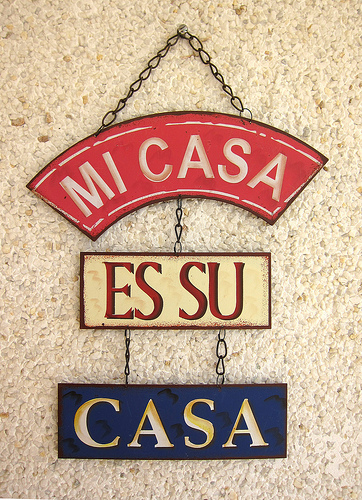El español tiene algunas palabras largas. Sí, me imagino que a veces te cuesta aprenderlas. ¡Bueno, aquí te traigo algunas de las palabras más largas de nuestra lengua!
Te preguntarás para que traigo esto. La mayoría de estas palabras se usan muy poco, sin embargo, creo que son excelentes para practicar la pronunciación. Igual que con los trabalenguas, pronunciar estas palabras es un reto. Un reto divertido que te permite practicar tu pronunciación.
 La primera de estas palabras se usa para nombrar algo que tienes en el cuello. Me refiero a un músculo que tienes a lo largo de todo el cuello y lo usas para mover la cabeza de un lado a otro. Este músculo se llama esternocleidomastoideo. Sí, esternocleidomastoideo.
La primera de estas palabras se usa para nombrar algo que tienes en el cuello. Me refiero a un músculo que tienes a lo largo de todo el cuello y lo usas para mover la cabeza de un lado a otro. Este músculo se llama esternocleidomastoideo. Sí, esternocleidomastoideo.
Y ¿has visto a esas personas que les ponen unos cables en la cabeza para poder medir su actividad cerebral? Bueno, la persona que pone los cables se llama electroencefalogramista.
Ahora una un poco más conocida: la famosa palabra de la película Mary Poppins. En la versión en español de la película, la actriz dice supercalifragilisticoespialidoso. ¡Prueba a leerla y pronunciarla como lo haría un hablante de español!
-
Spanish has some very long words. Yes, I wonder you have had a hard time trying to learn those. Well, here I bring some of the longest words in Spanish!
You may ask yourself why am I bringing these words in here. Most of these words are rarely use, however, I think they're great to put your pronunciation into practice. As well as it happens with tongue twisters, saying this words is challenge. An entertaining challenge that allows to practice the Spanish pronunciation.
The first of these words is used to name something you have on your neck. I'm referring to a muscle that goes all the way trough your neck and allows you to move your head to the sides. That muscle is called esternocleidomastoideo. Yes, you read it right, esternocleidomastoideo.
And have you seen those people that get some cables attached to their heads in order to read their brains activities? Well, the people in charge of putting the cables is called the electroencefalogramista.
Now one you will certainly be familiar with: the famous word that comes from the movie Mary Poppins. In the Spanish version of the movie, the main character sings supercalifragilisticoespialidoso. ¡Try to say it like a Spanish speaker would do!
